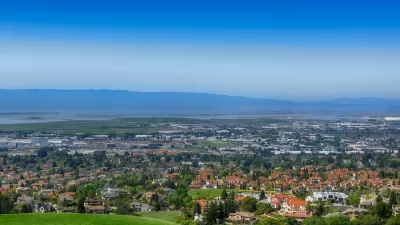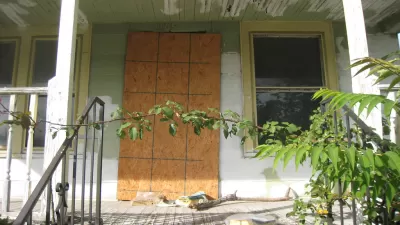The recovery of Las Vegas, hit hard by the Great Recession, resembles the recovery of the rest of the country—uneven and innovative.
The Economist reports on the economic recovery, as exemplified by the city of Las Vegas. To introduce the subject, the article first describes the "Ascaya" project, carved into a mountain ten miles to the southeast of the Las Vegas Strip:
"For five years the project appeared doomed to become a monument, carved into rock, to an unsustainable housing boom. Now however, construction has restarted—not just on this site, but on several hundred others at the city’s edge. House prices, like employment, visitor numbers and gambling revenues, are creeping up again. Las Vegas’s economy is recovering—fitfully, but in a way that is more sustainable than its previous boom was. The city, unique though it is, is an exaggerated microcosm of America at large."
The article goes on to detail the city's fall during the recession, before diving into the city's new economy. Examples of the city's newly diversified economy include the arrival of the company Switch, "a secretive firm which manages data for thousands of America’s biggest companies" that also has nothing at all to do with the gaming industry or the development of sprawling master planned communities. The article also notes changes in the gaming industry, which is building new products with less focus on gambling to attract younger crowds and more people who don't like to gamble.
Finally, the article notes that the city's recovery, like the country's recovery, has first benefitted the wealthy. The article returns to Ascaya to prove that point: "The new houses being built, such as those at Ascaya, are mostly targeted at the wealthy; many of the poor still remain underwater."
FULL STORY: Viva again

Alabama: Trump Terminates Settlements for Black Communities Harmed By Raw Sewage
Trump deemed the landmark civil rights agreement “illegal DEI and environmental justice policy.”

Study: Maui’s Plan to Convert Vacation Rentals to Long-Term Housing Could Cause Nearly $1 Billion Economic Loss
The plan would reduce visitor accommodation by 25% resulting in 1,900 jobs lost.

Planetizen Federal Action Tracker
A weekly monitor of how Trump’s orders and actions are impacting planners and planning in America.

Wind Energy on the Rise Despite Federal Policy Reversal
The Trump administration is revoking federal support for renewable energy, but demand for new projects continues unabated.

Passengers Flock to Caltrain After Electrification
The new electric trains are running faster and more reliably, leading to strong ridership growth on the Bay Area rail system.

Texas Churches Rally Behind ‘Yes in God’s Back Yard’ Legislation
Religious leaders want the state to reduce zoning regulations to streamline leasing church-owned land to housing developers.
Urban Design for Planners 1: Software Tools
This six-course series explores essential urban design concepts using open source software and equips planners with the tools they need to participate fully in the urban design process.
Planning for Universal Design
Learn the tools for implementing Universal Design in planning regulations.
Caltrans
Smith Gee Studio
Institute for Housing and Urban Development Studies (IHS)
City of Grandview
Harvard GSD Executive Education
Toledo-Lucas County Plan Commissions
Salt Lake City
NYU Wagner Graduate School of Public Service





























